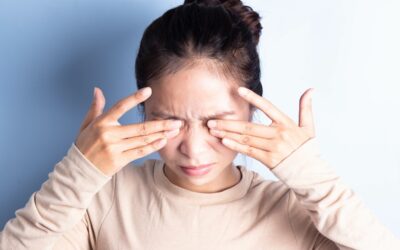Do you have itchy, red, and irritated eyes? Do they feel dry or gritty? Before you start treating your symptoms, it’s important to figure out what’s causing them. The most likely culprits are dry eye and allergies. It’s crucial to differentiate between the two because they require different treatment approaches.
In this blog post, we’ll explore the differences between dry eye and allergies and how to tell which one you have.
Understanding dry eye
Dry eye happens when your eyes don’t produce enough tears or produce poor-quality tears. The most common symptoms of dry eye include stinging, burning, and a scratchy sensation in your eyes. You may also experience blurred vision, sensitivity to light, and eye fatigue. If you typically notice these symptoms after reading or using a computer for a long time, it could be a sign of dry eye.
Understanding allergies
On the other hand, allergies occur when your immune system overreacts to a harmless substance. Common allergens include pollen, dust mites, pet dander, and mold spores. When these allergens come into contact with your eyes, they trigger an inflammatory response that leads to symptoms such as itching, redness, and swelling.
Distinguishing between the two
If you’re wondering whether it’s dry eye or allergies, one way to find out is by using artificial tears or lubricating drops. If your discomfort goes away after using these drops, chances are it’s due to dry eye rather than allergies. On the other hand, antihistamines or allergy medication will help relieve allergy-related symptoms like itchiness and swelling.
Itching is also usually more intense with allergies than with dry eye. With allergies, you might also have puffy or swollen eyelids along with congestion and a stuffy nose. These symptoms typically show up suddenly and last as long as you’re exposed to allergens. In contrast, dry eye tends to develop gradually and becomes more common as we get older.
Another way to differentiate between dry eye and allergies is by seasonality. Allergy symptoms tend to be seasonal depending on what triggers them—like pollen in the spring or fall leaves in autumn—while dry eye symptoms often persist throughout the year.
When to seek professional help
If you’re still unsure whether you have dry eye or allergies after considering these factors, it’s best to see an eye doctor for an eye exam. They can perform different tests to figure out what’s causing your symptoms and suggest the right treatment options.
If you’re dealing with symptoms of dry eye or allergies, Northwest Hills Eye Care can help. Our experienced eye doctors can diagnose and treat a range of conditions during an eye exam. As a leading provider of dry eye treatment in Austin and Round Rock, Texas, we offer a range of treatments to help you find relief and improve your overall eye health. Contact us today to schedule an appointment!



